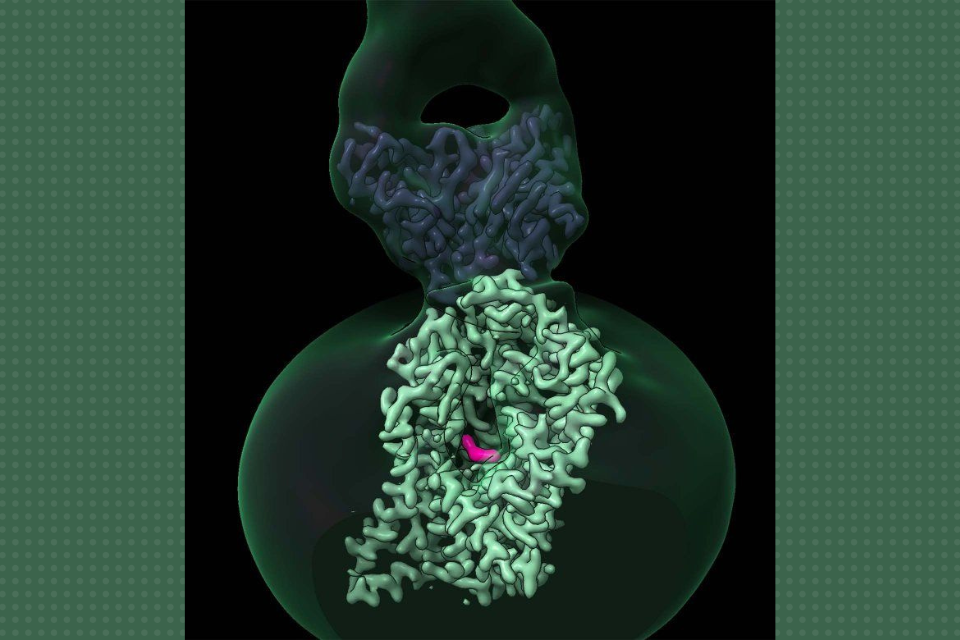Check out our news archive below to learn more about what’s happening in Duke Psychiatry & Behavioral Sciences!
Congratulations to the 2023 LEADER Alumni!
Congratulations to Andi Diaz Stransky, MD, of Duke Psychiatry & Behavioral Sciences, and her colleagues on completing the School of Medicine's 2023 LEADER Program.
Allison Taylor Selected for Dean’s Excellence Staff Award
Duke Psychiatry physician assistant Allison Taylor, PA-C, was selected to receive the inaugural Dean’s Excellence Staff Award in the School of Medicine.
Jane Gagliardi Named Associate Dean for Learning Environment and Well-being
Jane Gagliardi, MD, MHS, has been named the new Associate Dean for Learning Environment and Well-being, effective July 1. Gagliardi is a professor of psychiatry and behavioral sciences, professor of medicine, and the director of the Combined Internal Medicine-Psychiatry Residency Training Program.
Department Chair Moira Rynn Co-Authors Book on Adolescent Depression
"If Your Adolescent Has Depression: An Essential Resource for Parents" combines the most current scientific expertise—including the newest treatments and medications and the latest research findings on depression—with insights and practical advice from parents whose children have faced this mood disorder. The new book was co-authored by Duke Psychiatry chair Moira Rynn, MD.
A Promising Intervention: Shifting from Social Comparison to Social Savoring
A team of researchers led by Duke Psychiatry's Nancy Zucker, PhD, recently found promising results for a brief online intervention targeted at altering young adults’ manner of engagement with social media. The intervention aimed to supplant college students’ habitual social comparison when active on social media with social savoring: experiencing joyful emotions about someone else’s experiences. For those taught how and why to socially savor their daily social media intake, shifting focus from social comparison to social savoring measurably increased their performance self-esteem.
Q&A with Administrative Director Tuyen Phan, MBA
We recently sat down with Tuyen Phan, MBA, an administrative director in the Department of Psychiatry & Behavioral Sciences, to learn more about his path to research administration, his career at Duke, his Vietnamese culture, and his thoughts about Asian American and Pacific Islander Heritage Month.
Duke Med-Psych Resident Chosen for FASPE Ethics Fellowship
Gregg Robbins-Welty, MD, MS, a fourth-year internal medicine-psychiatry resident at Duke University Medical Center, is one of 14 medical students and early-career physicians chosen for the 2023 Medical Program of the Fellowships at Auschwitz for the Study of Professional Ethics (FASPE).
Inaugural Child Trauma Summit Draws Hundreds Interested in Improving Outcomes for NC’s Children
The inaugural child trauma summit at N.C. State University on April 27-28 drew hundreds of people in person and virtually. They came from across the state and various disciplines an also included people with lived experience. Duke Psychiatry's Lisa Amaya-Jackson, MD, MPH, Ernestine Briggs-King, PhD, William Copeland, PhD, and Angela Tunno, PhD, were among the speakers.
Psychedelic Inspires New Treatments for Addiction and Depression
Scientists at University of California San Francisco, Yale, and Duke (Duke Psychiatry's Bill Wetsel, PhD) have developed two new drug candidates for potentially treating addiction and depression, modeled on the pharmacology of a traditional African psychedelic plant medicine called ibogaine. At very low doses, these new compounds were able to blunt symptoms of both conditions in mice.
Mental Health Resources for Individuals and Families
With May designated as Mental Health Awareness Month, Duke Today highlights some of the mental health and well-being resources available through Duke for faculty, staff, trainees, and students.









